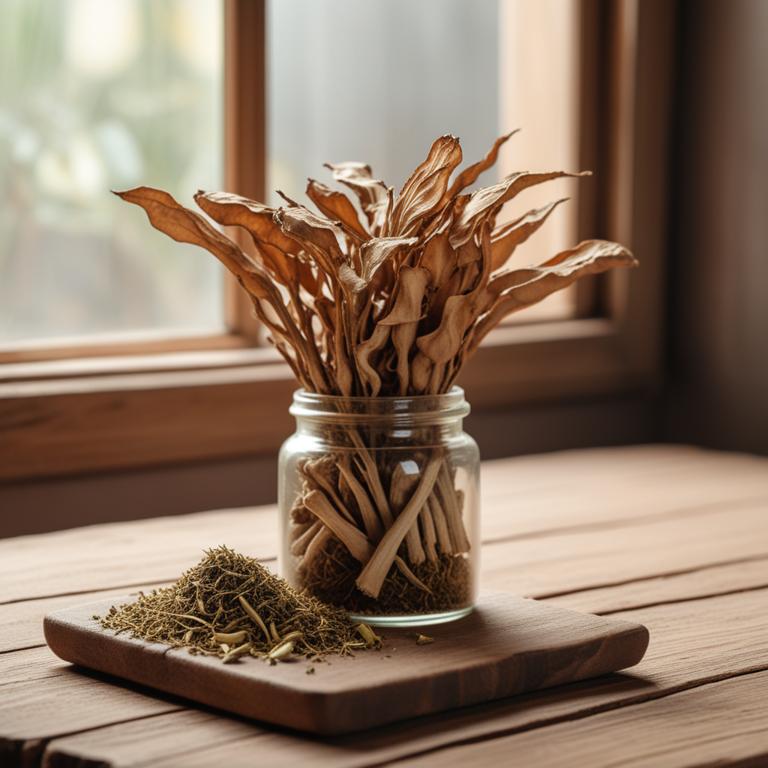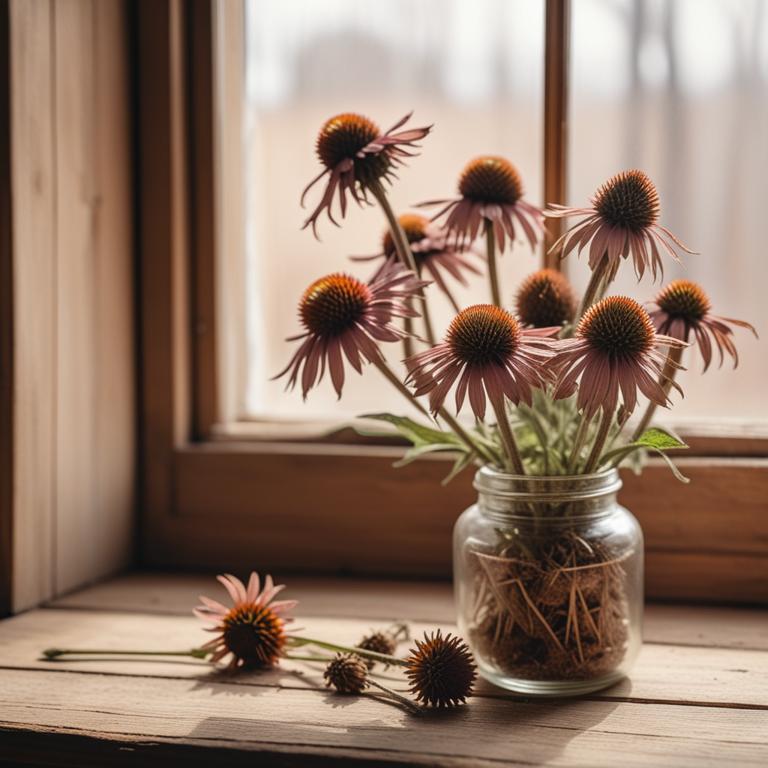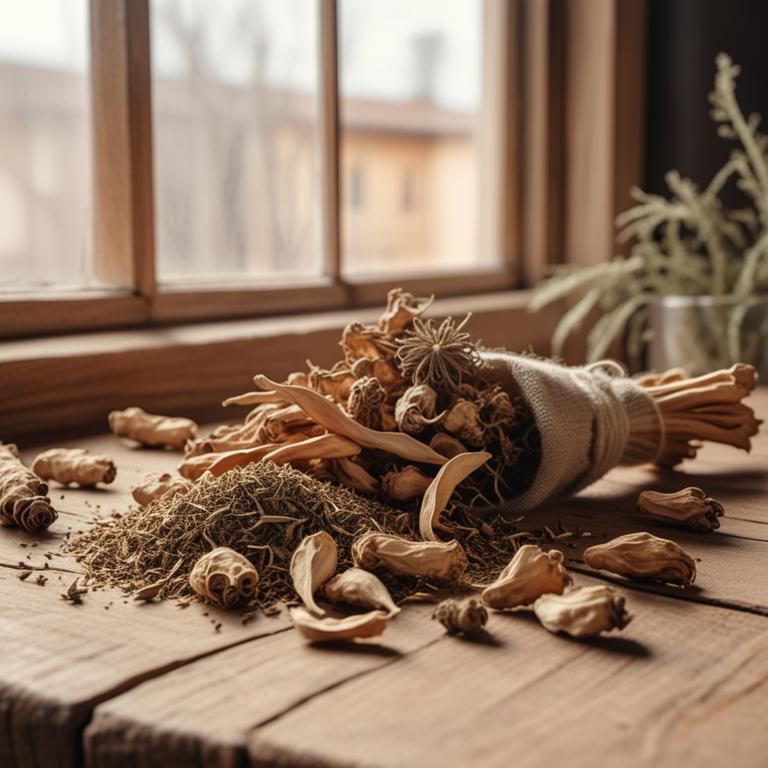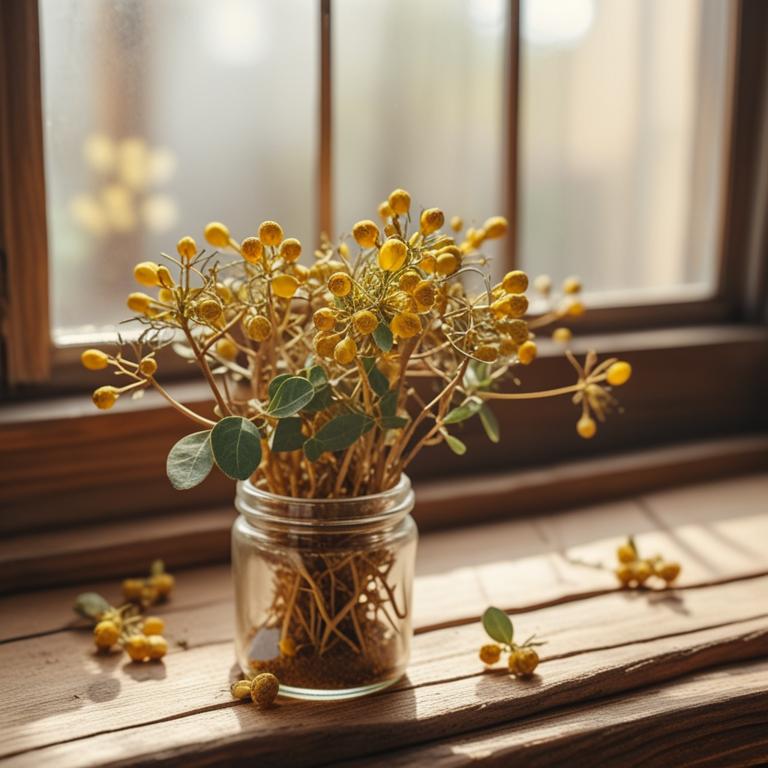Updated: Dec 1, 2024
Grey Hair Causes, Treatment, and Medicinal Herbal Preparations
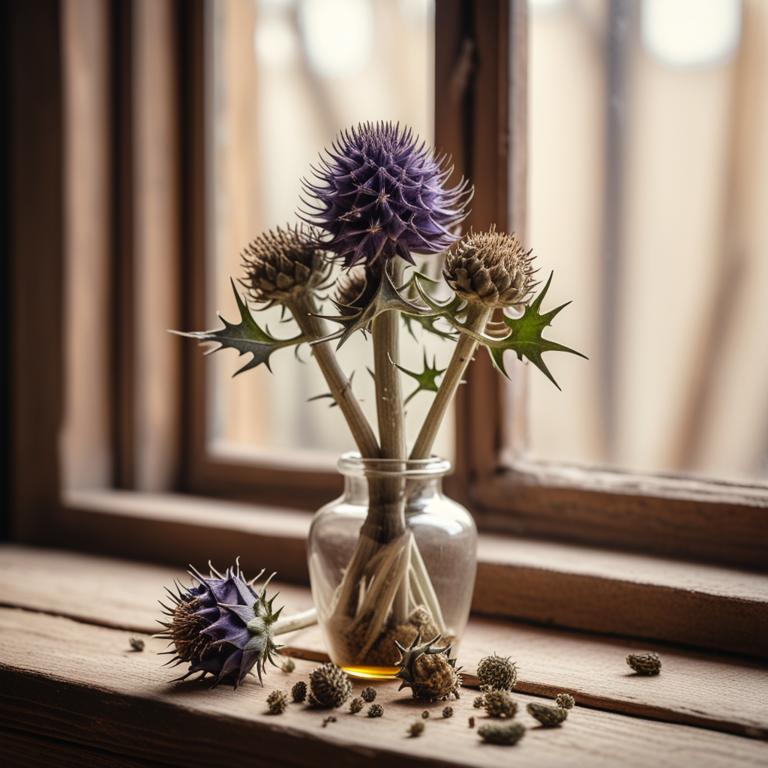
Grey hair can be a natural part of aging, but it can also be a source of concern for some people.
It can affect your self-confidence and make you feel older than you are. But what causes grey hair?. It's actually a sign that the pigment cells in your hair follicles are not producing enough melanin, which gives your hair its color. This can be due to stress, lack of sleep, and genetics.
There are some herbal remedies that may help to promote healthy hair and reduce grey hair. For example, Sage and Rosemary are known for their ability to stimulate hair growth and improve circulation to the scalp. You can make a tea by steeping dried Sage and Rosemary leaves in hot water, then straining and cooling it before applying it to your scalp as a treatment. You can also try drinking a tea made from a blend of herbs like Ginseng, Borage, and Saw Palmetto, which are thought to promote healthy hair and reduce stress. Some other herbs that may help to reduce grey hair include Black Pepper, which is believed to stimulate hair growth, and Amla, which is a natural antioxidant that can help to protect the hair follicles from damage.
You can also try using a hair mask made from a blend of these herbs to nourish and protect your hair.
Table of Contents
What are the causes of hair turning grey?
The main causes of grey hair are a combination of genetic, hormonal, and environmental factors that affect the way our hair grows.
Genetics play a significant role as they determine how our body responds to stress and aging. If your parents or grandparents started going grey early, you're more likely to experience the same. Age is another major factor - as we get older, the cells responsible for producing melanin, the pigment that gives our hair its color, start to die.
This is why most people start to notice grey hair in their 40s or 50s. Hormonal imbalance can also cause grey hair, particularly if you're experiencing stress, which can disrupt the balance of hormones in your body. For example, if you're experiencing a lot of stress and your body produces more cortisol, it can lead to grey hair. Family history can also be a factor, as certain genetic traits can be passed down from parents to children.
This means that if your family members have a history of early grey hair, you may be more likely to experience it as well.
What are the benefits of using herbs in relation to grey hair?
Using herbs to address grey hair can be beneficial in several ways.
Firstly, these herbs often promote natural hair growth, which can help cover up grey strands. They can also improve the overall health of your hair, making it look shinier, softer, and more vibrant.
Some herbs have antioxidant properties, which can protect your hair from damage caused by free radicals and environmental stressors. This can lead to stronger, more resilient hair that's less prone to breakage. Additionally, certain herbs have been known to stimulate the production of melanin, the pigment responsible for hair color, which can help to reduce the appearance of grey hair.
By using these herbs, you may be able to maintain a more youthful and natural-looking hair color.
What are the chief medicinal herbs for combating grey hair?
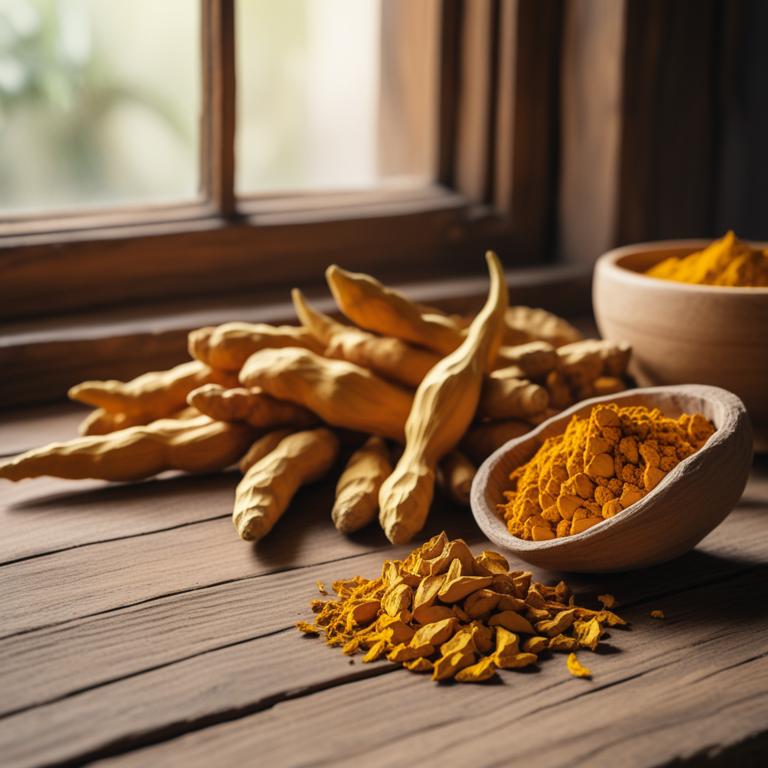
Herbs can be a great way to help with grey hair.
Some of these herbs are good because they promote healthy hair growth, reduce oxidative stress, and even help to restore the natural color of your hair. One of these herbs is Curcuma longa, also known as turmeric. It contains a powerful compound called curcumin, which has anti-inflammatory properties. When we age, inflammation in our body can affect our hair, making it grey and brittle. Curcumin can help reduce inflammation and promote healthy hair growth. Another herb is Aloe barbadensis, or aloe vera. Aloe vera is known for its soothing and moisturizing properties. It can help to hydrate your hair and scalp, reducing dandruff and itchiness. When your scalp is healthy, it can promote better hair growth, and aloe vera can help to do just that.
Bacopa monnieri is an herb that's been used in Ayurvedic medicine for centuries. It's known to improve memory and cognitive function, but it also has benefits for your hair. Bacopa monnieri can help to reduce stress and anxiety, which can contribute to grey hair. By reducing stress, you're giving your body a chance to produce melanin, the pigment responsible for hair color. Terminalia chebula, also known as haritaki, is another herb that's been used in Ayurvedic medicine. It's a natural antioxidant that can help to reduce oxidative stress in your body. Oxidative stress can cause your hair to turn grey, so using Terminalia chebula can help to slow down this process. Lastly, Cassia auriculata is a herb that's been used to promote hair growth and reduce grey hair. It has anti-inflammatory properties, which can help to reduce inflammation in the body and promote healthy hair growth. It also contains antioxidants that can help to protect your hair from damage.
These herbs can be consumed as supplements, applied to your hair and scalp as a paste, or even used as a hair oil.
What herbal formulas are typically used to combat grey hair?
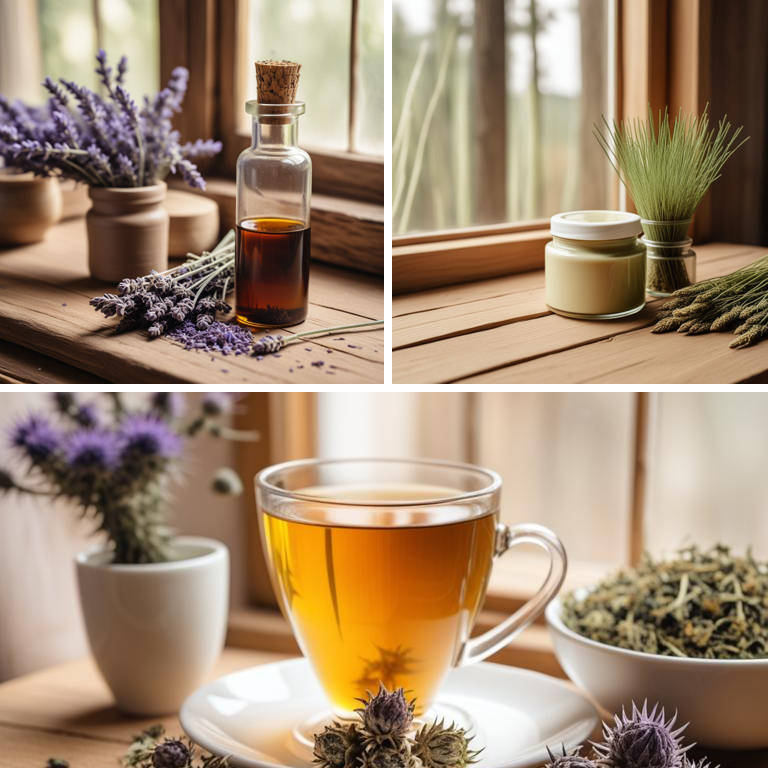
Herbal preparations can be a great way to address grey hair, and there are several options to choose from.
Infused oil, for example, is made by steeping herbs in a carrier oil like coconut or olive oil. This method allows the beneficial properties of the herbs to penetrate deep into the hair shaft, nourishing and conditioning the hair. Infused oil can be applied directly to the hair or mixed with a shampoo or conditioner for a more intense treatment. Tinctures, on the other hand, are concentrated extracts of herbs made with a solvent like alcohol or glycerin. They can be added to a shampoo or conditioner, or applied directly to the hair. Tinctures are a good choice for grey hair because they can help to stimulate hair growth and improve the overall health of the scalp.
Decoctions are similar to infusions, but they are made by boiling the herbs in water instead of steeping them. This method is often used for herbs that are too harsh to be infused in oil, and it can be a good choice for grey hair because it can help to stimulate hair growth and improve the circulation of the scalp. Herbal creams can also be a great way to address grey hair. They are usually made by infusing herbs in a base like coconut oil or shea butter, and then mixing the infused oil with other ingredients like beeswax or essential oils. Herbal creams can be applied directly to the hair or scalp, and they can help to nourish and condition the hair. Finally, herbal teas can be used to promote hair growth and improve the health of the scalp. They can be made by steeping herbs in hot water, and then cooled before applying to the scalp.
Herbal teas can be a good choice for grey hair because they can help to stimulate hair growth and improve the circulation of the scalp.
Additional Resources:
What herbs should be avoided when you have grey hair?
If you have grey hair, it's a good idea to be cautious with some herbs.
For example, Ginkgo biloba can cause your blood to thin, which may lead to bleeding if you have grey hair that's been dyed. This is because grey hair has less melanin, which can make it more prone to damage.
Ephedra sinica, on the other hand, can raise your blood pressure, which may be a problem if you're already sensitive to changes in blood pressure. Pausinystalia johimbe can also increase your heart rate, which may not be suitable for people with certain heart conditions. Hypericum perforatum, also known as St. John's Wort, can interact with medications you might be taking, including those for heart problems.
Panax ginseng can cause your blood pressure to rise and may interact with other medications as well.
FAQ
Are there any specific herbs that can prevent grey hair?
While there's no surefire way to prevent grey hair, some herbs may help reduce its onset.
Biotin-rich herbs like ginseng and ashwagandha are believed to promote hair health. Additionally, herbs with antioxidant properties like saw palmetto and rosemary may help slow down the greying process.
However, their effectiveness is largely anecdotal.
Is it safe to use herbal remedies for grey hair during pregnancy?
During pregnancy, it's best to be cautious when using herbal remedies for grey hair.
Some herbs can affect the baby or cause problems during delivery. If you want to try them, make sure to check the ingredients and look for products specifically designed for pregnant women.
It's also a good idea to read reviews and do some research first.
Are there any herbs that can reduce the frequency of grey hair?
Some herbs like saw palmetto and selenite may help reduce grey hair.
Saw palmetto is believed to block the conversion of testosterone to dihydrotestosterone, a hormone that can contribute to hair turning grey.
Selenite is thought to promote healthy hair growth and may reduce the appearance of grey hair.
Can i combine different herbal remedies for grey hair?
You can combine different herbal remedies for grey hair, but be cautious.
Some herbs might interact or have side effects when mixed. For example, combining saw palmetto and biotin can enhance hair growth, but be aware of potential interactions with other supplements or medications.
It's best to start with small amounts and monitor your body's response.
Related Articles
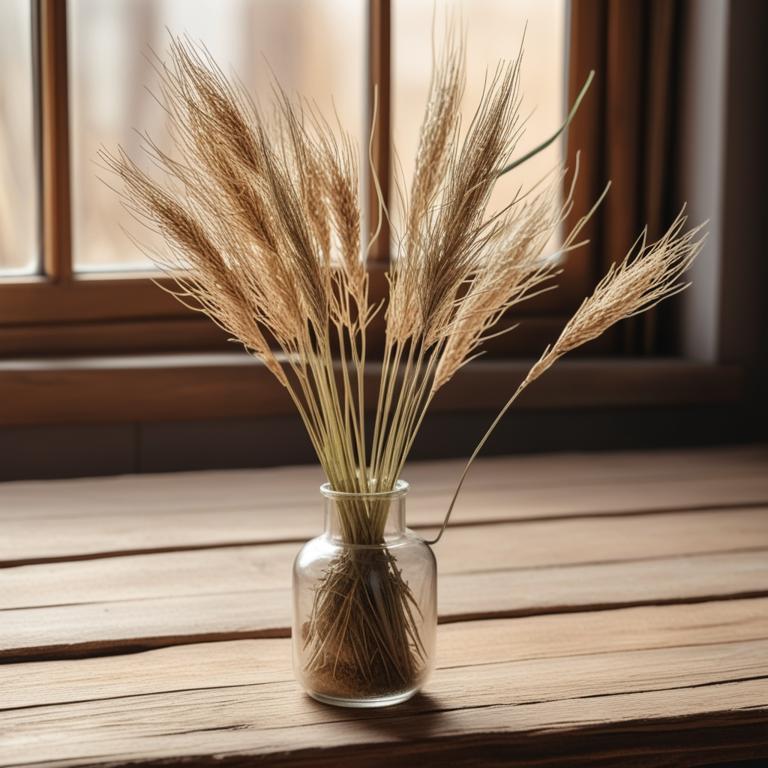
Dandruff: Causes, Symptoms, and Natural Treatments with Medicinal Herbs

Rashes: Causes and Homeopathic Herbal Solutions
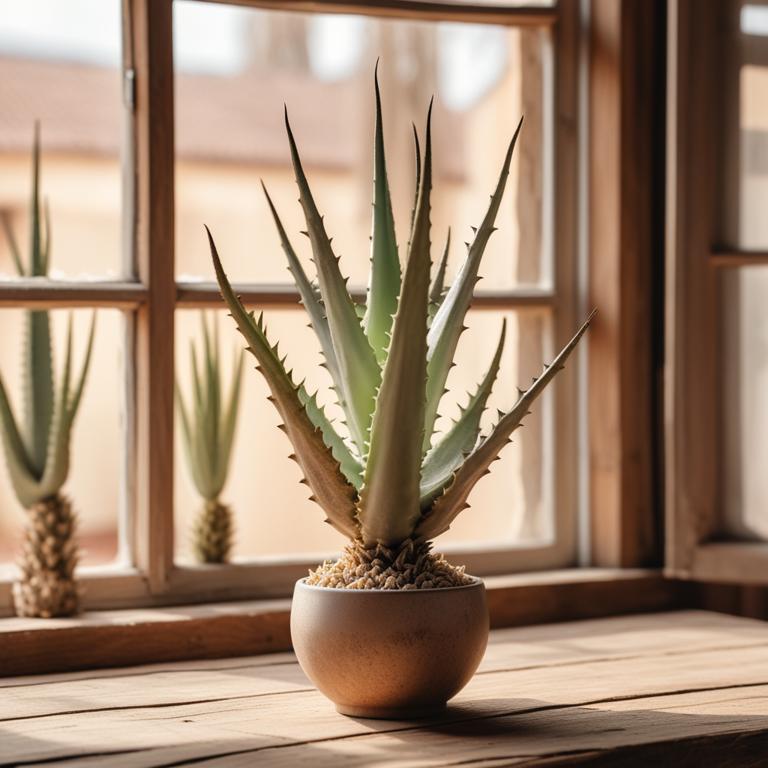
Causes and Remedies of Burning Feet: Medicinal Herbs and Herbal Preparations
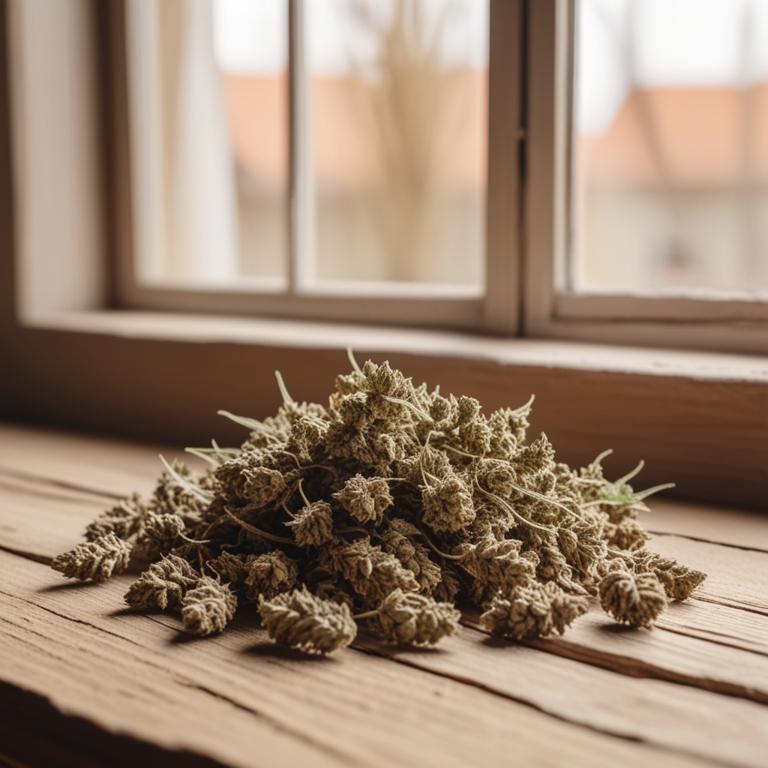
The Causes of Ingrown Hair and How Herbal Preparations Can Help
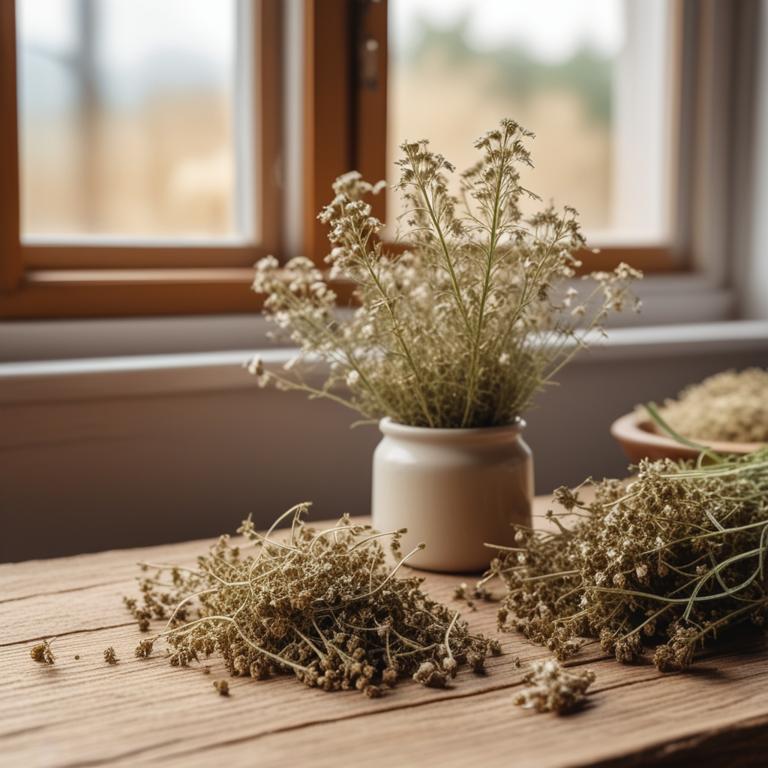
Natural Remedies for Dry Eyes: Causes, Medicinal Herbs, and Herbal Preparations
